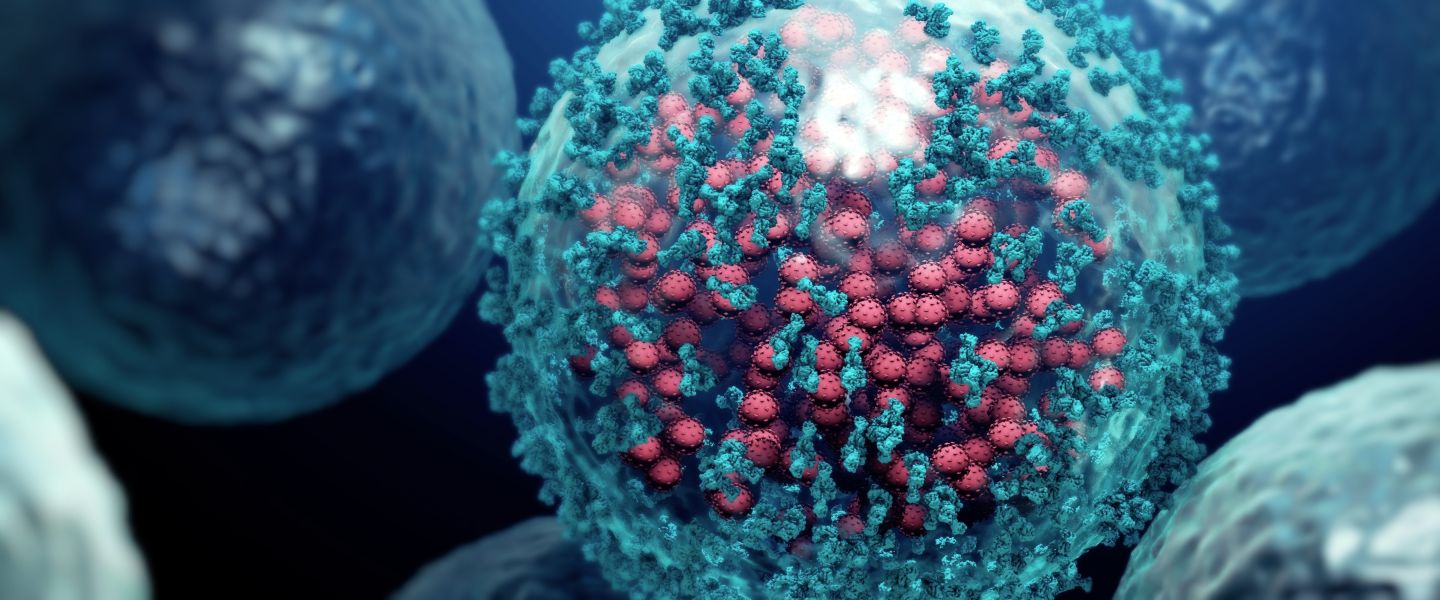SHARING / REPOSTING GUIDELINES: We're very happy to have posts/articles shared as direct links.
However, if you are replicating and re-posting information from this website or our posts, Abbey requests that you:
A) Only ever share articles in part (not in full). (eg. You can lift a paragraph as a way of introducing your readers to the topic) B) Be sure to always provide a direct link/URL back to the full original article here on the MyHealingCommunity.com website. Thanks in advance for your co-operation when sharing and re-posting any and all information that appears on this website.
The Risks of Long-Term Chemotherapy and the Potential of mTOR Inhibitors
Cancer remission represents a significant milestone for patients, but it ushers in a new phase of treatment: preserving the hard-won remission and preventing cancer recurrence. Ongoing or “maintenance” chemotherapy is often recommended to help maintain the remission.
Here are some of the risks associated with long-term chemotherapy:
1. Secondary cancers: Some chemotherapy drugs can increase the risk of developing a second type of cancer later in life. These secondary cancers can include leukemias, lymphomas, and solid tumors.
2. Heart problems: Some chemotherapy drugs can damage the heart, leading to long-term conditions such as congestive heart failure, arrhythmias, and pericarditis. The risk is higher with certain types of drugs and with higher cumulative doses.
3. Nervous system effects: Certain chemotherapy drugs can lead to peripheral neuropathy, a condition that results in tingling, numbness, or weakness in the hands and feet. This condition can become permanent if not managed appropriately.
4. Infertility: Certain chemotherapy drugs can damage the ovaries or testes, leading to fertility problems. Some patients may experience early menopause or may not be able to conceive a child after chemotherapy.
5. Bone density loss: Long-term use of chemotherapy can lead to loss of bone density, increasing the risk of fractures and osteoporosis.
6. Psychological effects: Long-term chemotherapy can have significant psychological impacts, including anxiety, depression, post-traumatic stress disorder, and cognitive issues often referred to as “chemo brain,” which may include memory loss and difficulty concentrating.
7. Immune system suppression: Chemotherapy can have long-term effects on the immune system, leaving patients more susceptible to infections. In some cases, the immune system may not fully recover after chemotherapy.
8. Kidney and liver damage: Some chemotherapy drugs can cause long-term damage to the kidneys or liver, which can affect these organs’ ability to function properly.
Because of the above issues, researchers are exploring alternative and less toxic maintenance therapies. In preclinical studies, the therapeutic combination of metformin and rapamycin demonstrated a potential synergy of anti-tumor activity in one of the deadliest of all cancers: metastatic pancreatic ductal adenocarcinoma.
Healing Cancer Study Support Facebook Group Members:
Click here and log into Facebook to visit the Cancer Study Support Group conversation thread for exploring the anti-cancer research on MetforminWhy inhibiting mTOR is possible and makes good sense.
Metformin and rapamycin were found to synergistically inhibit a major biological regulator of growth, named the mechanistic target of rapamycin (mTOR). mTOR is thought to be the main driver of many (if not all) age-related diseases, including cancer. mTOR is a protein kinase that regulates cell growth, proliferation, motility, survival, protein synthesis, and transcription. It has been recognized as a key player in aging and age-related diseases due to its multifaceted roles in our cells:
1. Cell growth and protein synthesis: mTOR, especially its complex mTORC1, is a central controller of cellular growth and metabolism. Aging is associated with increased protein synthesis errors and cellular senescence, where cells lose their ability to divide. Overactive mTORC1 signaling has been linked to these aspects of aging, contributing to the accumulation of cellular damage and increased susceptibility to diseases such as cancer.
2. Autophagy regulation: mTOR plays a vital role in the regulation of autophagy, a process where cells remove and recycle damaged components. This process declines as we age, leading to the accumulation of damaged proteins and organelles. mTOR inhibits autophagy when nutrient levels are high, and dysregulation of this mechanism can lead to conditions such as neurodegenerative diseases and cancer.
3. Inflammation: Chronic inflammation is a hallmark of aging, known as “inflammaging.” mTOR is known to regulate the immune response and is involved in the activation and function of immune cells. Dysregulated mTOR signaling may contribute to chronic inflammation and subsequent tissue damage seen in aging.
4. Metabolic dysfunction: mTOR is critical in nutrient sensing and the regulation of metabolic processes. It plays a role in insulin signaling and energy balance in the body. Disruptions to mTOR pathways can lead to metabolic diseases, such as diabetes and obesity, which are closely linked to aging.
5. Neurodegeneration: mTOR dysregulation is associated with the pathogenesis of several neurodegenerative diseases, including Alzheimer’s and Parkinson’s disease. These disorders are characterized by protein aggregation and impaired neuronal function, processes that are influenced by mTOR activity.
The mTOR signaling pathway plays a pivotal role in regulating cell growth, survival, and metabolism, and it has been found to be aberrantly activated in many types of cancer. Here’s how overactive mTOR is thought to contribute to cancer:
1. Cell growth and proliferation: mTOR, especially the mTOR complex 1 (mTORC1), promotes cell growth and proliferation by increasing protein synthesis. It does this by activating the S6 kinase and inhibiting the eIF4E-binding protein (4E-BP1), both of which are crucial in initiating protein synthesis. When mTOR is overactive, it can lead to uncontrolled cell growth and division, a hallmark of cancer.
2. Angiogenesis: mTOR can stimulate the production of vascular endothelial growth factor (VEGF), a protein that promotes the formation of new blood vessels, a process known as angiogenesis. While angiogenesis is a normal process involved in growth and healing, it also enables tumors to grow by supplying them with nutrients and oxygen and allowing cancer cells to spread to other parts of the body.
3. Cell survival: mTOR promotes cell survival by inhibiting apoptosis (programmed cell death). In healthy cells, if there is damage or mutation that can’t be repaired, the cell is programmed to die to prevent potential harm. In cancer cells, this apoptosis mechanism is often disrupted. Overactive mTOR can promote survival of these damaged or mutated cells, contributing to tumor growth.
4. Metabolic rewiring: Cancer cells often exhibit altered metabolism to support rapid growth and proliferation, a phenomenon known as the Warburg effect. mTOR plays a key role in metabolic regulation and its overactivation can contribute to this metabolic rewiring in cancer cells, favoring glycolysis and biosynthesis pathways to support the energetic and biosynthetic demands of uncontrolled growth.
5. Immune evasion: Recent research has also implicated mTOR signaling in the regulation of immune responses. Dysregulated mTOR activity could contribute to the ability of cancer cells to evade detection and destruction by the immune system, although this area of research is still quite new, and the precise mechanisms aren’t fully understood.
In closing, it is essential to understand the significant risks of long-term chemotherapy and the vital importance of ongoing research in the development of more effective and less harmful treatments in the fight against cancer. The potential of mTOR inhibitors is an exciting avenue of investigation.
Comments: In addition to the synergy found between metformin and rapamycin to help prevent cancer recurrence, resveratrol and melatonin should be investigated as adjuvant chemopreventive (cancer-suppressing) agents. A combination of melatonin and rapamycin was found to suppress the mTOR pathway and activate mitophagy and apoptosis via mitochondrial function regulation. Metformin was shown to enhance the anti-cancer properties of resveratrol via induction of apoptosis and autophagy, and down-regulation of VEGF-B signaling pathway. Resveratrol was found to potentiate the anti-tumor effects of rapamycin and block the proliferation of cancer cells. And combinations of resveratrol and melatonin, and metformin and melatonin, were shown to exert multiple chemopreventive effects.
Dr. Daniel Thomas, DO, MS
Metabolic & Nutritional Medicine
Integrative Cancer Therapeutics
Mount Dora, Florida
Disclaimer:
This information is for educational purposes only and not intended or implied to be personal medical advice. That is for your personal physician to provide after he or she has carefully studied the references provided below.
* MCS offers ULTRAFAST WORLDWIDE SHIPPING with FedEx and UPS
** MCS are a SOCIAL ENTERPRISE - see the We Donate 50% program
References
Bever KM, Borazanci EH, Thompson EA, Durham JN, Pinero K, Jameson GS, Vrana A, Liu M, Wilt C, Wu AA, Fu W, Wang H, Yin Y, Leal JP, Jesus-Acosta A, Zheng L, Laheru DA, Von Hoff DD, Jaffee EM, Powell JD, Le DT. An exploratory study of metformin with or without rapamycin as maintenance therapy after induction chemotherapy in patients with metastatic pancreatic adenocarcinoma. Oncotarget. 2020 May 26;11(21):1929-1941.
Bian P, Hu W, Liu C, Li L. Resveratrol potentiates the anti-tumor effects of rapamycin in papillary thyroid cancer: PI3K/AKT/mTOR pathway involved. Arch Biochem Biophys. 2020 Aug 15;689:108461.
Bojková B, Kajo K, Kisková T, Kubatka P, Žúbor P, Solár P, Péč M, Adamkov M. Metformin and melatonin inhibit DMBA-induced mammary tumorigenesis in rats fed a high-fat diet. Anticancer Drugs. 2018 Feb;29(2):128-135.
Kisková T, Ekmekcioglu C, Garajová M, Orendáš P, Bojková B, Bobrov N, Jäger W, Kassayová M, Thalhammer T. A combination of resveratrol and melatonin exerts chemopreventive effects in N-methyl-N-nitrosourea-induced rat mammary carcinogenesis. Eur J Cancer Prev. 2012 Mar;21(2):163-70.
Shen YQ, Guerra-Librero A, Fernandez-Gil BI, Florido J, García-López S, Martinez-Ruiz L, Mendivil-Perez M, Soto-Mercado V, Acuña-Castroviejo D, Ortega-Arellano H, Carriel V, Diaz-Casado ME, Reiter RJ, Rusanova I, Nieto A, López LC, Escames G. Combination of melatonin and rapamycin for head and neck cancer therapy: Suppression of AKT/mTOR pathway activation, and activation of mitophagy and apoptosis via mitochondrial function regulation. J Pineal Res. 2018 Apr;64(3).
Zhu M, Zhang Q, Wang X, Kang L, Yang Y, Liu Y, Yang L, Li J, Yang L, Liu J, Li Y, Zu L, Shen Y, Qi Z. Metformin potentiates anti-tumor effect of resveratrol on pancreatic cancer by down-regulation of VEGF-B signaling pathway. Oncotarget. 2016 Dec 20;7(51):84190-84200.
DISCLAIMER: Any and all information in this post was gathered from published research in cell lines or animals, or from typical clinical use. It may not be complete, may not have not been verified in humans, and is NOT meant or given as medical advice, but only as a guide to further exploration.








